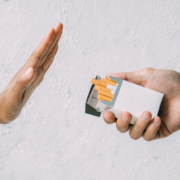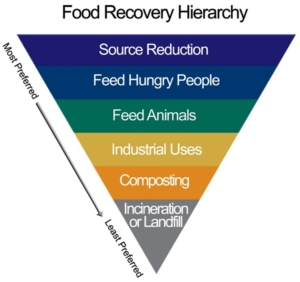By Child Labor Coalition intern Ellie Murphy
There is a strong correlation between access to education and preventing child labor. “Lack of access to education keeps the cycle of exploitation, illiteracy, and poverty going—limiting future options and forcing children to accept low-wage work as adults and to raise their own children in poverty,” noted the children’s advocacy group, Their World.
With nine in 10 children across the globe prevented from attending school in person, Human Rights Watch notes that interrupting formal education will have a huge impact on children and jeopardize their opportunity for better employment opportunities in the future: “For many children, the COVID-19 crisis will mean limited or no education, or falling further behind their peers.”
Poverty is the single greatest cause of child labor. Because many parents have lost or will lose their jobs, children are facing increased pressure to supplement family incomes. “Children work because their survival and that of their families depend on it, and in many cases because unscrupulous adults take advantage of their vulnerability,” notes the International Labour Organization.
Countries are being impacted by COVID-19 differently, but developing countries are expected to feel more negative consequences than developed countries, according to a report from WorldAtlas.com. Tourism and trade helps fuel many of these economies and the COVID pandemic has devastated both sectors.
Developing countries—primarily in Africa and Asia—already house 90 percent of working children, according to the International Journal of Health Sciences. Economic pressure from the pandemic will likely drive even more children into the workforce.
Before the pandemic, child labor in West Africa was widespread. 2.1 million child laborers were employed by cocoa farms in the Ivory Coast and 900,000 children on cocoa farms in Ghana, according to researchers from Tulane University. Ghana and the Ivory Coast produce about 60 percent of the world’s cocoa—a critical ingredient in chocolate. A recent Voice of America (VOA) article included predications that “there will be increased economic pressures on farming families, and ongoing school closures in Ghana [meaning] children are more likely to accompany their parents to their farms and be exposed to hazardous activities.”
The VOA cited research by the International Cocoa Initiative that analyzed the impacts of income loss on child labor rates in the Ivory Coast and found that a 10 percent drop in income for families in the cocoa industry is expected to produce a 5 percent increase in child labor.
Bangladesh, which had a reported 1.2 million children trapped in the worst forms of child labor in 2015, according to *the ILO, is also at risk of seeing child labor increase. Most Bangladeshi workers—*87 percent—earn money in the informal economy performing daily labor, unpaid work for their family, or piece-rate work. COVID-19 impacts have left families struggling with a severe drop in income of around 70 percent in many cases. Many adults and children who work making parts of products like garments have seen their income disappear entirely. “Those who depend on daily wages, for example, day labourers, rickshaw pullers, construction workers, street vendors, workers at small informal factories have lost their incomes with the hit of the pandemic,” noted researchers with the Institute for Development Studies. With this dramatic loss of income, it is expected that families will turn to their children to earn more money to buy basic necessities for survival.
In an effort to combat the potential increase in child labor, human rights organizations have urged governments to support families during this crisis—including the use of cash transfer programs. This entails direct cash payments to destitute families. Sometimes there are strings attached to the payments. Families that accept the money must promise to keep children in school and not allow them to enter the labor market. Cash transfers, often involving small amounts of money, have proven effective, in varying degrees, in reducing child labor in many countries.
In the COVID-19 pandemic, even small amounts of money might prevent starvation—or keep children out of the labor market. Save the Children argues that cash transfers help reduce the rate of child mortality, increase access to education, and reduce child abuse. Researchers Jacobus DeHoop and Eric Edmonds recently noted that 133 countries were working on social protection responses that provide financial support to vulnerable families in an effort to combat an increase in child labor during this time. Human Rights Watch has a series of recommendations for governments, including cash transfer payments.
Government efforts alone may not be enough. Companies that employ vulnerable demographics must also respond. Verité, an organization that works to eliminate abusive labor and empower workers, issued a series of *recommendations to help companies address COVID impacts. Among the recommendations was a call for companies that work in areas with high rates of child labor to monitor “hot spots” for exploitation and intervene when necessary. Additionally, Verite urged companies to provide benefits for families who experience a loss of a parent due to the pandemic, make work remote when possible, and provide longer sick leaves for employees.
The COVID-19 crisis calls for innovative efforts to protect vulnerable families and children. As Jo Becker, the children’s rights advocacy director at Human Rights Watch, notes “the choices governments make now are crucial, not only to mitigate the worst harm of the pandemic, but also to benefit children over the long term.” By providing families with desperately needed resources during this unprecedented time, it may be possible to help curtail the increase of child labor worldwide.
In the last two decades, the world has seen the number of child laborers drop by nearly 100 million. “We do not want to see those hard-won gains reversed,” said Reid Maki, director of child labor advocacy for the National Consumers League and the coordinator of the Child Labor Coalition. “Concerted and robust action is required.” The actions that those in power take today will have long-lasting impacts that go far beyond COVID-19.
Ellie Murphy is a rising junior at Tufts University, majoring in International Relations and Sociology.
*Links are no longer active as the original sources have removed the content, sometimes due to federal website changes or restructurings






















